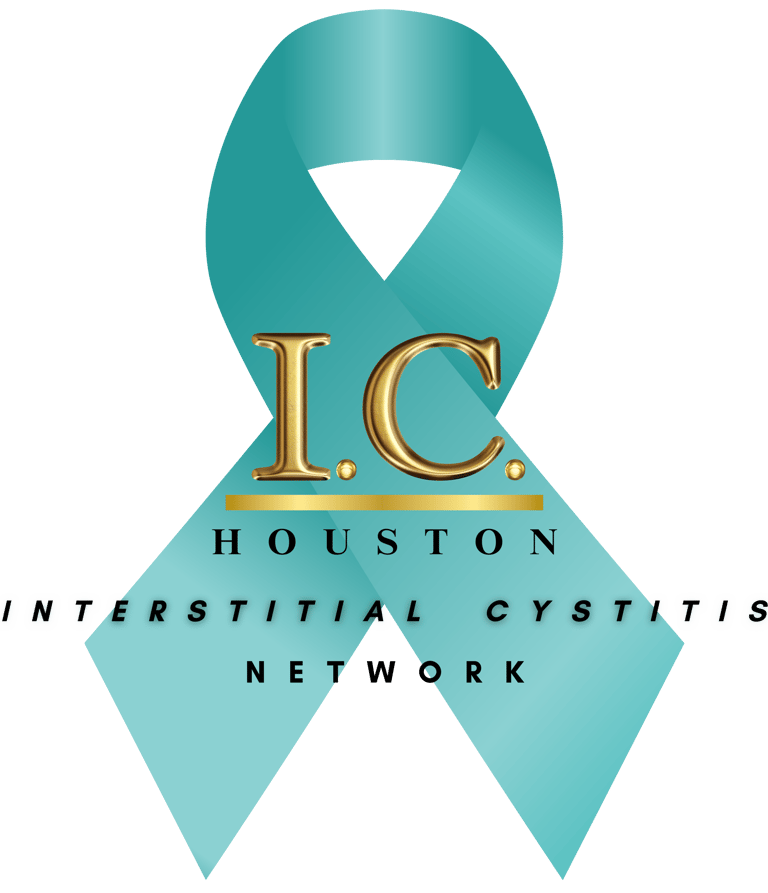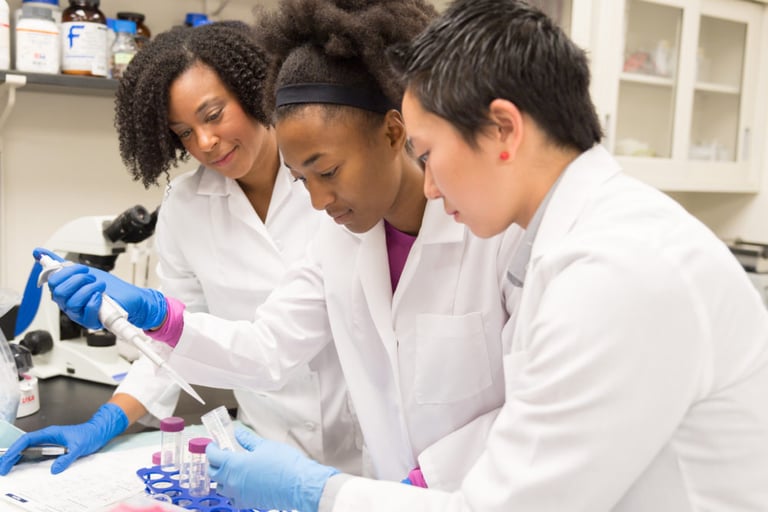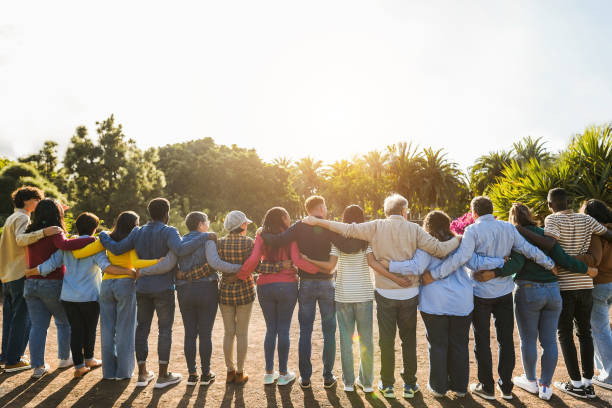
Patrice B. Coleman
Hello, my name is Patrice B. Coleman, and I am the proud founder of the Houston Interstitial Cystitis Network, a 501(c)(3) nonprofit organization. I have suffered from Interstitial Cystitis (IC) for over 21 years. I am a native of Houston, where I graduated from Jesse H. Jones High School in the Houston Independent School District and earned my Bachelor of Science degree in Criminal Justice/Pre-Law from Prairie View A&M University. I worked in the Texas Attorney General’s Office for nearly 15 years until I was unable to do so due to my diagnosis of IC.


CEO / FOUNDER


Interstitial Cystitis (IC), also known as Bladder Pain Syndrome (BPS), is a chronic condition that causes pain and pressure in the bladder and pelvic area, along with increased urinary frequency and urgency. It’s not an infection and is often a diagnosis of exclusion, meaning that other potential causes are ruled out first. Key characteristics include pelvic pain, bladder pain, and painful urination.
Interstitial Cystitis has had an unbearable impact on my life. It has caused my bladder wall to stiffen, reducing my ability to hold urine and leading to more frequent urination. It has led to many sleep disturbances, made it difficult for me to complete normal daily tasks, participate in social activities, and the pain has led me to visit my therapist for potential depression. The emotional burden of IC has strained my relationships with my family and close friends. In summary, the exhaustion of living with a chronic illness caused me to lose my employment at the Texas Attorney's Office.
There is no single cause for IC. It is a complex condition in which the contributing factors include inflammation of the bladder lining, changes in nerves, and the body’s immune system potentially attacking the bladder. In response to my diagnosis, the lack of a support system in the Houston area, and the challenges of dealing with this illness, I established the Houston Interstitial Cystitis Network to educate individuals by organizing conferences to equip them with strategies and resources for dealing with IC, support research efforts, and build a strong network of opportunities for those battling debilitating chronic pelvic illnesses. IC patients do not appear ill, but we fight extreme pain daily.
Your tax-deductible donations are welcome and will be used to support research and other endeavors that will provide a better quality of life for IC warriors.
“Our ribbon is teal, and our pain is real.”
Patrice B. Coleman

Our Services
Supporting Interstitial Cystitis (IC) patients through resources, community, and advocacy for better living is at the core of our mission. We provide essential information on treatment options, lifestyle adjustments, and coping strategies to empower patients to manage their condition more effectively. Beyond resources, we foster a strong sense of community, where individuals can connect with others who truly understand their struggles, offering a network of emotional and peer support. Advocacy is also a key component of our efforts—working to raise awareness, promote research, and influence policy changes that lead to improved healthcare access, better treatment options, and a higher quality of life for IC patients. Through these combined efforts, we aim to ensure that no one with IC feels isolated, uninformed, or without hope for a better future.
Research Funding
Providing financial support for critical Interstitial Cystitis (IC) research initiatives and advancements is essential to improving the lives of those affected by this debilitating condition. By funding cutting-edge studies, we aim to uncover new treatments, develop more accurate diagnostic tools, and ultimately work toward a cure. These research efforts are not only about alleviating symptoms but also about giving patients hope for a future where IC can be better managed or even eliminated. In addition to medical breakthroughs, our financial support helps attract top researchers and ensures that the scientific community continues to prioritize IC as a serious public health issue.
Community Support
Creating a safe space for patients to connect, share experiences, and find encouragement is vital in helping those with Interstitial Cystitis (IC) cope with the emotional and mental toll of living with a chronic condition. Many IC patients feel isolated due to the nature of the disease, which can be difficult for others to understand. By fostering a supportive community, we provide an environment where individuals can openly discuss their struggles, exchange tips on managing symptoms, and share personal stories that offer comfort and validation. This sense of belonging can be profoundly healing, as it helps patients realize they are not alone in their journey. Through peer support groups, online forums, and community events, we aim to empower individuals with IC, providing them with the strength, hope, and encouragement they need to face their daily challenges.
Financial Assistance
Offering financial help to patients facing challenges due to Interstitial Cystitis (IC) treatment costs is a critical part of our mission. Many individuals with IC endure expensive medical treatments, including doctor visits, medications, therapies, and procedures, which can quickly become overwhelming. For those without adequate insurance or financial resources, these costs can limit access to necessary care, forcing them to choose between their health and other essential needs. By providing financial assistance, we aim to ease this burden, ensuring that no one has to forgo treatment due to financial constraints. Our support allows patients to focus on their health and well-being rather than the economic strain of managing this chronic condition.







Empowering Change Through Your Donations
Join us in making a real difference. Your contributions directly help us support those in need by providing access to essential treatments, financial assistance, and emotional care for individuals living with Interstitial Cystitis. With your generosity, we are able to fund vital research for better therapies, expand outreach programs, and create a strong support network for patients and their families. Together, we can change lives for the better by bringing hope, relief, and the promise of a brighter future to those affected by this painful and often misunderstood condition. Every donation, no matter the size, is a step toward improving the quality of life for IC patients and strengthening our community as a whole.


150+
88
Trusted by Many
Join Us
Legal & Tax-Exempt Status
The Houston Interstitial Cystitis Network is a nonprofit corporation proudly incorporated in the State of Texas and is officially recognized by the Internal Revenue Service as a tax-exempt organization under Section 501(c)(3) of the Internal Revenue Code. All contributions are tax-deductible to the fullest extent allowed by law.
EIN: 92-3853910
Incorporation Date: May 3, 2023
Our commitment is to support individuals affected by Interstitial Cystitis through support, and improved access to care.

(FAQs)
Interstitial Cystitis (IC)
Support and Advocacy
Symptoms and Diagnosis
Research and Future Developments
Treatment and Care
What is Interstitial Cystitis (IC)?
Interstitial Cystitis, also known as bladder pain syndrome (BPS), is a chronic condition that causes bladder pressure, pain, and discomfort in the pelvic area. It is not caused by an infection or bacteria, and therefore, antibiotics are not effective. The severity of symptoms varies but often includes a frequent urge to urinate, pain during intercourse, and disrupted daily activities.
How Houston Interstitial Cystitis Network is IC?
In the United States, IC affects approximately 3-8 million women and 1-4 million men. However, the condition is likely under diagnosed because its symptoms overlap with other disorders such as urinary tract infections or overactive bladder syndrome.
What is the Houston Interstitial Cystitis Network, and how can it help?
The Houston Interstitial Cystitis Network, based in Houston, TX, is a 501(c)(3) non-profit organization dedicated to improving the lives of those suffering from IC. We provide:
· Educational resources to better understand IC.
· Support groups to connect patients with others who share their experiences.
· Advocacy for improved healthcare access and awareness.
· Assistance in identifying specialists and managing treatments.
Primary Symptoms:
Bladder pain or discomfort – Often described as pressure, aching, or burning in the bladder or pelvic area.
Urinary urgency – A constant or sudden need to urinate, even if the bladder isn’t full.
Urinary frequency – Needing to urinate far more often than normal (sometimes 40+ times per day in severe cases).
Pain during or after sexual intercourse – Particularly common in women with IC.
Flare-ups – Periods when symptoms worsen, often triggered by diet, stress, hormonal changes, or illness.
Other Possible Symptoms:
Lower abdominal discomfort
Pelvic floor muscle tenderness or spasms
Relief of pain temporarily after urination (in some cases)
Diagnosis of Interstitial Cystitis
IC is a diagnosis of exclusion — meaning doctors rule out other causes before confirming it. Common diagnostic steps include:
Medical History Review
Duration, severity, and triggers of symptoms
Past bladder infections, pelvic surgeries, or related health issues
Physical & Pelvic Exam
Checks for tenderness, pelvic muscle dysfunction, and other signs
Urinalysis & Urine Culture
Rules out bacterial urinary tract infections (UTIs)
Cystoscopy (optional but common)
A small camera examines the bladder lining for Hunner lesions or other abnormalities
Urodynamic Testing
Measures bladder capacity, muscle function, and nerve response
Symptom Duration Criteria
Symptoms generally need to last 6 weeks or more without evidence of infection or another cause
Note: No single test confirms IC — diagnosis is based on history, symptom patterns, and ruling out other conditions.
There is no one-size-fits-all cure for IC, but symptoms can often be reduced — sometimes dramatically — through a combination of medical treatments, self-care strategies, and lifestyle adjustments. The American Urological Association (AUA) recommends a step-by-step, layered approach, starting with the least invasive options and progressing if symptoms persist.
1. Lifestyle & Self-Care Adjustments (First-Line Care)
Identify and avoid triggers – Common culprits include acidic foods, caffeine, alcohol, spicy dishes, artificial sweeteners, and carbonated drinks.
Hydration – Drink enough water to dilute urine without overhydrating.
Stress management – Yoga, meditation, deep breathing, and gentle movement can reduce flares.
Bladder training – Gradually lengthening the time between bathroom trips to help reduce urgency.
2. Pelvic Floor Physical Therapy
Specialized therapists can teach exercises to relax and retrain pelvic floor muscles.
Myofascial release techniques can reduce muscle spasms and referred pain.
3. Oral Medications
Pentosan polysulfate sodium (Elmiron®) – May help repair bladder lining.
Antihistamines (e.g., hydroxyzine) – Reduce inflammation triggered by mast cells.
Tricyclic antidepressants (e.g., amitriptyline) – Calm overactive bladder nerves and reduce pain.
Pain relievers – NSAIDs or other options for pain management.
4. Bladder Instillations
Medications (like lidocaine, heparin, or DMSO) are placed directly into the bladder through a catheter to reduce inflammation and pain.
5. Neuromodulation & Nerve Stimulation
TENS units – Gentle electrical pulses help calm bladder nerves.
Sacral nerve stimulation – Implanted devices can modulate nerve signals in severe cases.
6. Procedural or Surgical Options (Last Resort)
Bladder hydrodistension – Expands bladder under anesthesia; may relieve symptoms temporarily.
Hunner lesion treatment – Lesions can be cauterized or injected with steroids during cystoscopy.
Surgical reconstruction or diversion – Only for the most severe, treatment-resistant cases.
Key Point: Most people improve by combining multiple therapies — diet changes, physical therapy, medications, and stress control — and making gradual, sustainable adjustments.
Living with IC can be physically exhausting and emotionally draining, but you don’t have to face it alone. Support networks, advocacy organizations, and patient-led initiatives can provide education, community, and a voice for better research and treatment access.
1. Other Patient Support Resources that HICN has partnered with
Interstitial Cystitis Association (ICA) – www.ichelp.org
Offers educational guides, webinars, diet resources, and a searchable directory of IC-friendly providers.Interstitial Cystitis Network (ICN) – www.ic-network.com
Features diet handouts, patient forums, research news, and treatment updates.Local & Online Support Groups – Many hospitals, urology clinics, and nonprofits host in-person meetings; Facebook and Reddit have active IC communities where members share coping tips and encouragement.
2. Professional Support
Urologists & Urogynecologists – Specialists who understand complex bladder conditions.
Pelvic Floor Physical Therapists – Can help manage pelvic tension and reduce symptom severity.
Pain Management Clinics – For comprehensive, multidisciplinary approaches to chronic pain.
3. Advocacy Opportunities
Awareness Campaigns – September is Interstitial Cystitis Awareness Month, when advocacy groups organize public education campaigns.
Legislative Action – Contacting lawmakers to push for more IC research funding and improved insurance coverage for treatments.
Patient Registries – Contributing your health data to IC research databases helps improve understanding of the disease and speeds up discovery of new treatments.
4. Emotional & Mental Health Support
Therapists & Counselors – Especially those experienced in chronic illness coping skills.
Mind-Body Programs – Guided meditation, yoga, or cognitive behavioral therapy (CBT) to manage stress and pain perception.
Peer Mentoring – Pairing newly diagnosed patients with experienced IC warriors for one-on-one guidance.
Key Point: Support and advocacy aren’t just “extra help” — they are vital tools for reducing isolation, improving care, and driving systemic change for people living with IC.
1) Sharper subtypes & biomarkers
Guidelines now distinguish Hunner-lesion IC from non-Hunner IC and emphasize stepwise, personalized care. Expect more “treat by subtype” algorithms, not one-size-fits-all. American Urological Association+1AUA Journals
Urine and tissue cytokine panels (e.g., IL-6, IL-8) are being studied to aid diagnosis and track response. Early results are promising but not clinic-standard yet. PubMed
Urinary biomarker clustering is being explored to non-invasively flag Hunner vs non-Hunner disease—another step toward precision IC. MDPI
2) Microbiome: from hunch to evidence
Multiple reviews show urinary/vaginal/gut microbiome shifts in IC/BPS, hinting at inflammatory and metabolic pathways that could be targeted. PubMed
A 2024 Mendelian-randomization study suggests a causal link between specific gut microbiota and IC—opening doors to microbiome-guided therapy. Early days, but big implications. Frontiers
3) Intravesical therapies getting refined
Hyaluronic acid (HA) and other GAG-layer “rebuilders” continue to show symptom improvements in select patients; evidence quality varies, but signals are consistent. PMCMDPIICS
2024 RCT: intravesical interferon performed well vs HA without serious adverse events—an interesting pipeline option if results replicate. JAMA NetworkPMC
4) Neuromodulation—less knife, more nerves
Tibial/pelvic neuromodulation remains a promising path for refractory cases; technique and protocols are being standardized, but data generally support quality-of-life gains. PMCFrontiersScienceDirectBrieflands
5) Pentosan polysulfate (PPS): benefits vs vision risk
A growing body of ophthalmology data confirms a dose-dependent risk of pigmentary maculopathy with long-term PPS. Patients on PPS should discuss ophthalmic screening; some guidelines are getting more cautious. NCBIPMCScienceDirect
2025 Canadian guideline: conditional recommendation against oral PPS vs standard care (low-certainty evidence)—watch this space as societies align. PMC
6) What to watch next (12–36 months)
Multiplex urine tests that combine cytokines + microbiome signals for diagnosis/subtyping. PubMed+1ICS
Better criteria for neuromodulation responders (who benefits, which settings, how long). PMCFrontiers
Head-to-head intravesical trials (e.g., HA vs HA+chondroitin vs interferon) to nail down first-line instillation choices. PMCMDPI
Ongoing guideline updates that formalize subtyping and de-emphasize treatments with unfavorable risk-benefit (e.g., PPS in some patients). American Urological AssociationPMC
Note: IC care is moving from “try everything” to targeted, data-driven plans. Ask your clinician about: (1) whether you fit a Hunner vs non-Hunner pathway, (2) intravesical options (including HA or interferon where available), (3) neuromodulation if you’re refractory, and (4) PPS eye-safety if you’re on it. Stay curious; the pipeline is finally getting interesting.

We’re here to support you on your IC journey, providing not only resources and information but also a compassionate community that understands the unique challenges you face. Whether you're newly diagnosed or have been managing Interstitial Cystitis for years, our goal is to offer guidance, emotional support, and practical solutions to help you navigate this difficult path. From connecting you with others who share similar experiences to offering financial aid for treatments, we are dedicated to standing by your side every step of the way. Together, we can help you find relief, build resilience, and regain a sense of control over your life.


You are not alone in this fight.
We are committed to walking this journey with you.
Our office
4401 West Richey Road
Suite B2,
Houston, Tx. 77066
Hours
Monday - Friday
9am - 2pm
Contacts
(832) 580-9972
info@hicntx.org
“Our ribbon is teal, and our pain is real.”
Contact Us
Support
Raising awareness and supporting IC patients together.
Advocacy
Community
(832) 580-9972


© 2024. All rights reserved.
